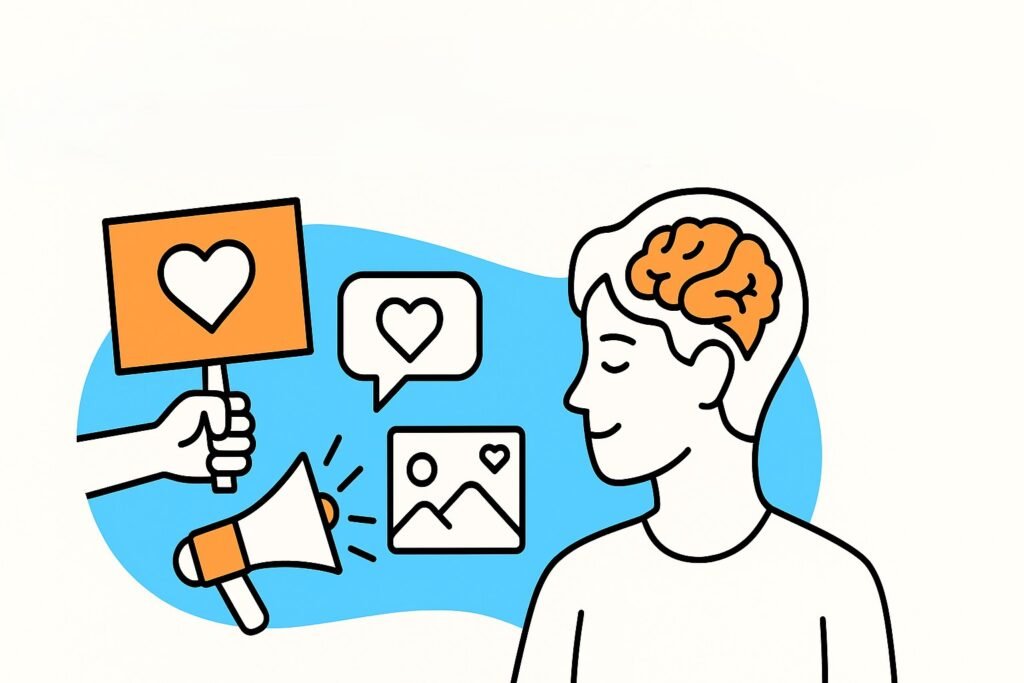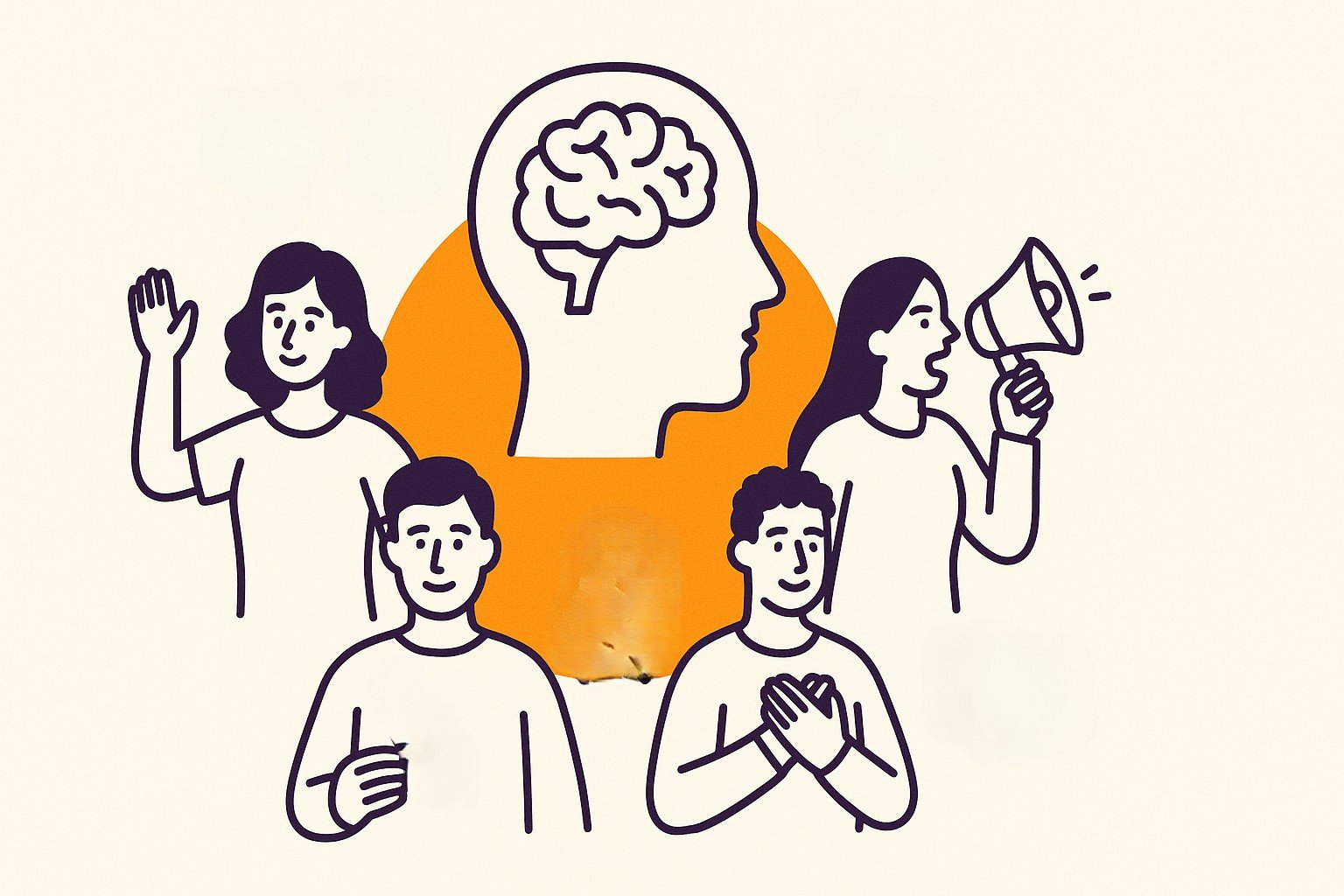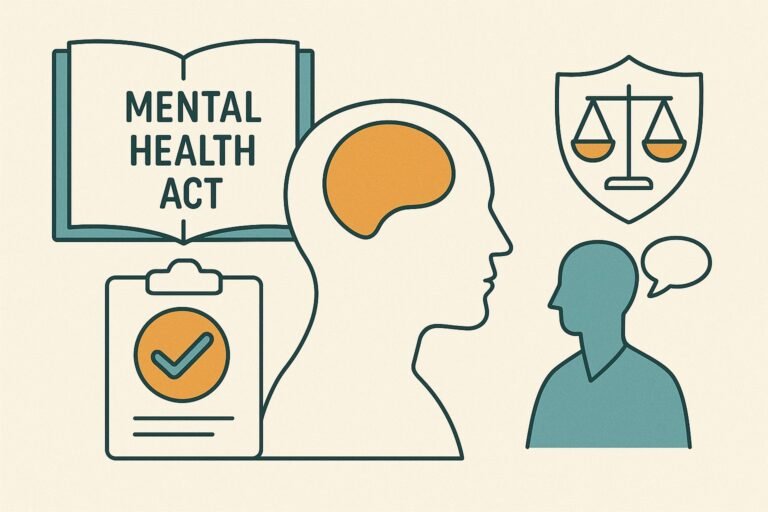Campaigns Raising Mental Health Awareness
Raising Mental Health Awareness: Aware of the rising mental health challenges, numerous campaigns have emerged to increase understanding and support for this vital issue. These initiatives aim to combat stigma, promote open conversations, and ensure that individuals feel comfortable seeking help. By engaging in these campaigns, you can play an active role in promoting mental health awareness within your community and beyond. Discover how your involvement can lead to positive change and strengthen the support system for those affected by mental health issues.
Raising Mental Health Awareness: Key Takeaways:
- Campaigns play a significant role in reducing stigma associated with mental health issues, encouraging open conversations.
- Utilising various platforms, including social media and community events, enhances the reach and impact of awareness campaigns.
- Engaging with individuals who share personal mental health journeys fosters connection and relatability within the community.
- Providing educational resources and support options is vital to empower individuals to seek help and understand mental health better.
- Collaboration between organisations, healthcare providers, and local communities strengthens the effectiveness of awareness initiatives.
Importance of Mental Health Awareness
To foster a supportive environment, it is important to raise awareness about mental health. Understanding the complexities of mental health allows you to engage in meaningful conversations, reduce stigma, and encourage individuals to seek help. Ultimately, by prioritising mental well-being, you contribute to healthier communities and empower those affected by mental health issues.
Understanding Mental Health
Behind the term “mental health” lie various emotional, psychological, and social factors that influence your well-being. Just as physical health encompasses a range of conditions, mental health reflects your ability to cope with stress, maintain relationships, and make decisions. Recognizing these elements helps you understand the importance of nurturing your mental well-being.
Impact on Society
Any discussion about mental health awareness must consider its impact on society. A mentally healthy population enhances productivity, reduces healthcare costs, and fosters social cohesion. When you promote mental well-being, you not only support individuals but also contribute to a society that values the importance of mental health.
At the community level, the impact of widespread mental health awareness can lead to significant changes. By shedding light on mental health issues, you can facilitate better access to services and support systems, ultimately decreasing stigma and encouraging open dialogue. This proactive approach not only helps individuals cope better but also enhances overall societal well-being, creating a more informed and compassionate environment for everyone.
Types of Campaigns
The landscape of mental health awareness campaigns is diverse, with each type serving a unique purpose. Common types include:
| Social Media Campaigns | Utilizing platforms to spread awareness and resources. |
| Community Outreach | Engaging directly with local populations. |
| Workplace Initiatives | Fostering a supportive environment in professional settings. |
| Educational Workshops | Providing knowledge and skills for mental health management. |
| Fundraising Events | Generating funds for mental health resources and research. |
Knowing the different types of campaigns can help you find the one that resonates best with your interests and values.
Social Media Initiatives
Campaigns utilizing social media are powerful tools for raising awareness about mental health. These campaigns often engage users through hashtags, shares, and informative posts, creating a virtual community where individuals can share their experiences and support each other. By leveraging the reach of social platforms, these initiatives can educate and empower individuals while breaking down the stigma surrounding mental health.
Community Outreach Programs
Programs that focus on community outreach are crucial in making mental health resources accessible. Through workshops, support groups, and informational sessions, these programs aim to connect with individuals who might not seek help otherwise. By bringing mental health awareness directly to you, they foster an inclusive environment where you can openly discuss your challenges and access valuable resources.
Even the most effective community outreach programs face challenges, such as limited funding and community engagement. These programs often rely on volunteers who genuinely care about making a difference, thus creating a sense of community and support. Ensuring accessibility is key, as it allows individuals from various backgrounds to participate and benefit. By promoting a culture of understanding and support, these programs can significantly influence mental health awareness and help to alleviate feelings of isolation and stigma.
Successful Campaigns Worldwide
All around the globe, mental health awareness campaigns have proven to be effective in fostering understanding and reducing stigma. These initiatives have not only educated the public but also mobilised communities to support individuals suffering from mental health conditions. By showcasing the effectiveness of various strategies, you can see how successful campaigns can make a difference in people’s lives and reshape societal perceptions around mental health.
Case Studies
Between 2001 and 2023, numerous campaigns yielded significant results, showcasing the impact of dedicated efforts on mental health awareness:
- Time to Change (UK): Reached over 30 million people, increasing understanding of mental health by 20%.
- World Mental Health Day: In 2022, social media engagements exceeded 1 billion, spreading awareness globally.
- Bell Let’s Talk (Canada): Raised over $100 million for mental health initiatives, resulting in a 20% increase in people seeking help.
- Movember Foundation: Focused on men’s mental health, saw a 12% increase in men discussing mental health issues.
Lessons Learned
Lessons learned from these initiatives can guide your own efforts in raising mental health awareness effectively. You should consider the importance of engaging storytelling and leveraging social media to reach wider audiences. Effective campaigns often employ relatable messages to dismantle stigma while encouraging open discussions.
Another vital aspect is collaboration with mental health professionals and community organisations to ensure authenticity and support. Your campaign can make a significant impact when you tailor your messages based on research and real-life experiences, ultimately leading to a greater understanding and openness about mental health in society.

Strategies for Effective Campaigns
Now, to design impactful mental health awareness campaigns, you need a well-defined strategy that encompasses clear messaging, multi-channel outreach, and data-driven adjustments. By engaging your audience and utilising the most effective platforms, you can amplify your message and create a lasting impression. Incorporate storytelling to evoke empathy and ensure that you consistently evaluate your campaign’s performance to maximise its impact and reach.
Target Audience Engagement
Targeting your audience is imperative for building connections that matter. By understanding their demographics, interests, and preferred communication channels, you can tailor your messages effectively. Always strive to create relatable content; whether through social media, workshops, or community events, engaging directly with your audience fosters a sense of belonging and encourages them to share their own experiences.
Collaborations and Partnerships
Campaigns can greatly benefit from strategic collaborations and partnerships. By teaming up with mental health organisations, influencers, and local businesses, you expand your reach and resources. These collaborations allow for shared expertise and increased visibility, which can amplify your message and attract a broader audience.
Another way to enhance the effectiveness of your campaigns is through strong partnerships that provide mutual support. Engaging with organisations that focus on mental health can help you access valuable resources and credibility. Additionally, working with influencers can bring awareness to your cause, while local businesses can offer platforms for outreach. These collaborations are opportunities to mobilise community support and ensure your message resonates deeply, ultimately leading to a greater impact on mental health awareness.
Overcoming Challenges in Campaigns
For mental health awareness campaigns to be effective, you must navigate a multitude of obstacles. From addressing societal stigma to securing necessary funding, tackling these challenges head-on is vital for making a lasting impact. Your ability to overcome these hurdles is key to ensuring that your campaign resonates with and benefits those in need.
Stigma and Misunderstanding
The stigma surrounding mental health can deter open conversations and hinder your campaign’s success. Many individuals hold misconceptions that can prevent them from seeking help or supporting awareness initiatives. By actively working to educate your audience and promote understanding, you can dismantle these barriers and foster a more supportive environment.
Resource Allocation
Allocation of resources is vital for the sustainability and impact of your mental health campaign. Without sufficient funding, time, and personnel, your initiative may struggle to make a significant difference, limiting your outreach and effectiveness.
Plus, securing adequate financial support and personnel resources is fundamental for your campaign’s longevity. You may need to demonstrate how your area of focus can positively affect the community, attracting potential sponsors. Consider approaching local businesses or organisations likely to support initiatives addressing mental health concerns. By ensuring that your campaign has the right mix of financial, human, and informational resources, you can significantly increase your chances of success and reach the greatest number of people in need.
Future Directions in Mental Health Campaigns
Despite the progress made in mental health awareness, future campaigns must evolve to address the diverse needs of various communities. By integrating innovative approaches and understanding the unique challenges faced by different groups, you can help create inclusive strategies that amplify voices and improve access to mental health resources.
Innovations and Technology
Behind the scenes, advancements in technology are reshaping mental health campaigns. You can leverage social media, mobile apps, and teletherapy to reach broader audiences, providing real-time support and creating digital platforms for sharing personal stories that foster connection and understanding.
Policy Implications
Beside these innovative strategies, the importance of advocating for mental health policies cannot be understated. You have the power to influence reforms that lead to better funding, access to services, and the integration of mental health care within primary health systems.
In fact, pushing for effective policies can address systemic challenges that inhibit access to mental health care. By advocating for consistent funding and broadening coverage, you can help reduce the stigma surrounding mental health issues and promote inclusive programs tailored to your community’s needs. This work can ensure that every individual has the resources and support they require, ultimately fostering a healthier society.
Conclusion
To wrap up, engaging in campaigns that raise mental health awareness is a vital step in fostering a supportive community for yourself and others. By participating in these initiatives, you contribute to destigmatising mental health issues, encouraging open conversations, and providing resources for those in need. Your involvement can help create environments where individuals feel safe to share their experiences and seek assistance. Ultimately, raising awareness not only benefits you but also empowers countless others to prioritise mental well-being in their lives.
Raising Mental Health Awareness: FAQ
Q: What are mental health awareness campaigns?
A: Mental health awareness campaigns are initiatives aimed at educating the public about mental health issues. They seek to reduce stigma, provide information about mental health conditions, and encourage individuals to seek help when needed. These campaigns can take various forms, including social media posts, community events, workshops, and educational programs.
Q: Why is mental health awareness important?
A: Raising awareness about mental health is vital because it helps people understand the significance of mental well-being in overall health. It can lead to increased acceptance and support for those struggling with mental health issues. Awareness campaigns can also promote early intervention, reducing the impact of mental health conditions on individuals and society by encouraging people to seek help.
Q: How can individuals get involved in mental health awareness campaigns?
A: Individuals can participate in mental health awareness campaigns in various ways. They can volunteer for local organisations, share information on social media, attend events, or even start their own initiatives. Engaging in conversations about mental health and supporting those who are struggling is also a meaningful way to contribute to awareness efforts.
Q: What are some effective strategies for mental health awareness campaigns?
A: Effective strategies for mental health awareness campaigns include utilising social media to reach broader audiences, collaborating with mental health professionals for accurate messaging, and creating engaging content that resonates with people. Community involvement, storytelling, and providing accessible resources also enhance the impact of campaigns.
Q: How can I measure the success of a mental health awareness campaign?
A: The success of a mental health awareness campaign can be measured through various metrics. This includes tracking engagement rates on social media, attendance at events, feedback from participants, and the number of individuals seeking help after the campaign. Surveys can also be conducted to assess changes in public perception about mental health before and after the campaign.







